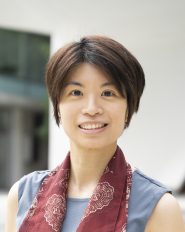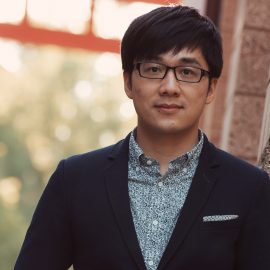
Studying Hong Kong cinema allows students to understand the global reach of a major international industry and the local expression of Hong Kong identity through visual spectacle, story, style, stars, and sound. Hong Kong’s unique and complex history and extraordinary dynamism are mirrored in the themes, images and speed central to this vibrant cinema. Students will explore the varied ways in which Hong Kong’s complex hybrid identities, transnational linkages, and cultural fluidity are represented through film and examine Hong Kong cinema’s global influence and art. This course will raise and give students the tools to handle the following questions or approaches:
- What is Hong Kong Cinema?
- What are the stages of Hong Kong Cinema?
- How do you read Hong Kong film language(s) (or: the poetics of cinema)?
- What are the genres and typologies of Hong Kong cinema?
- What roles do directors, cinematographers, stars, studios, and audiences play in Hong Kong cinema?
Register now
View course on Workday Student
Why should students study Hong Kong?
What is Hong Kong cinema and culture?
Why do you study Hong Kong?
What makes the course special?
 Dr. Helena Wu is the author of The Handover After the Handover: Places, Things and Cultural Icons in Hong Kong (Liverpool University Press, 2020), in which she explores the manifestation of the local in colonial and post-handover Hong Kong. She has also published on the topics of Hong Kong cinema, culture, and media in Interventions: International Journal of Postcolonial Studies (2018), Chinese Martial Arts and Media Culture (2018), Hong Kong Keywords (2019), Global Media and China (2020), and Journal of Chinese Cinemas (2020).
Dr. Helena Wu is the author of The Handover After the Handover: Places, Things and Cultural Icons in Hong Kong (Liverpool University Press, 2020), in which she explores the manifestation of the local in colonial and post-handover Hong Kong. She has also published on the topics of Hong Kong cinema, culture, and media in Interventions: International Journal of Postcolonial Studies (2018), Chinese Martial Arts and Media Culture (2018), Hong Kong Keywords (2019), Global Media and China (2020), and Journal of Chinese Cinemas (2020).
 Renren Yang’s research and teaching span twentieth-and twenty-first-century Chinese literature, cinema, and popular culture, with a focus on issues of authorship, mediation, and hybrid genres in Chinese literary and media scenes. His current book project, “A Media Genealogy of Literary Fame in Modern China: Paper, Stage, Screen, and Sphere,” traces the changing concepts, practices, and politics of celebrity authorship throughout twentieth-century Chinese history with the ongoing shift from the print to the digital regime of letters. He also published articles on Chinese web novels and surveillance cinema. Prior to moving to UBC, he taught first-year seminars at Stanford University.
Renren Yang’s research and teaching span twentieth-and twenty-first-century Chinese literature, cinema, and popular culture, with a focus on issues of authorship, mediation, and hybrid genres in Chinese literary and media scenes. His current book project, “A Media Genealogy of Literary Fame in Modern China: Paper, Stage, Screen, and Sphere,” traces the changing concepts, practices, and politics of celebrity authorship throughout twentieth-century Chinese history with the ongoing shift from the print to the digital regime of letters. He also published articles on Chinese web novels and surveillance cinema. Prior to moving to UBC, he taught first-year seminars at Stanford University.
 Su-Anne Yeo researches and teaches in the areas of film studies, media studies, and cultural studies, with a specialization in Chinese screen cultures. She completed a PhD in Media and Communications under the supervision of Professor Chris Berry at Goldsmiths, University of London, in 2016 and is currently developing a monograph, entitled Alternative Screen Cultures in Asia Pacific, for Amsterdam University Press. Her output includes publications on various aspects of screen distribution and exhibition, and her book chapter, “Translating the Margins: New Asian Cinema, Independent Cinema, and Public Culture at the Hong Kong Asian Film Festival,” from the edited collection, Chinese Film Festivals: Sites of Translation, was published by Palgrave Macmillan in spring 2017.
Su-Anne Yeo researches and teaches in the areas of film studies, media studies, and cultural studies, with a specialization in Chinese screen cultures. She completed a PhD in Media and Communications under the supervision of Professor Chris Berry at Goldsmiths, University of London, in 2016 and is currently developing a monograph, entitled Alternative Screen Cultures in Asia Pacific, for Amsterdam University Press. Her output includes publications on various aspects of screen distribution and exhibition, and her book chapter, “Translating the Margins: New Asian Cinema, Independent Cinema, and Public Culture at the Hong Kong Asian Film Festival,” from the edited collection, Chinese Film Festivals: Sites of Translation, was published by Palgrave Macmillan in spring 2017.